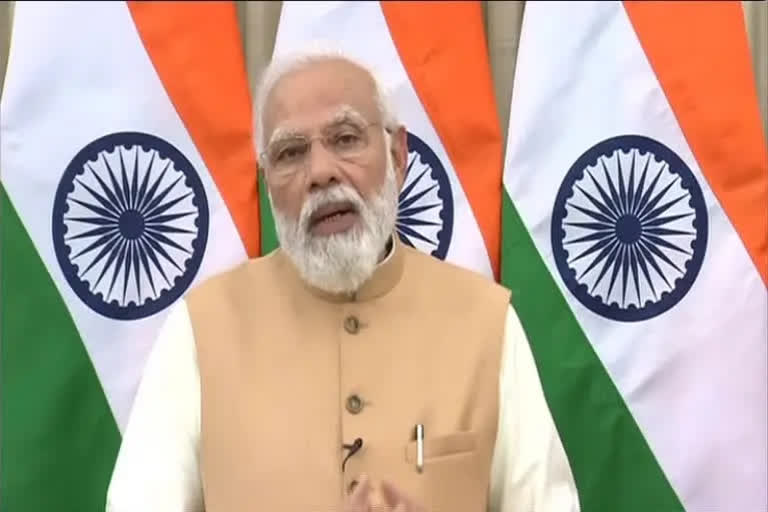New Delhi: Prime Minister Narendra Modi on Wednesday said the post-pandemic world was on the cusp of change and it was imperative for India to change at a rapid pace to emerge as a self-reliant nation.
Addressing a symposium on 'Atmanirbhar Arthavyavastha' (self-reliant economy) organised by the BJP, he listed out initiatives announced in the union budget such as vibrant border villages, plans to introduce 5G technology, schemes for the farm sector and asserted that the fundamentals of the economy were strong and the nation was moving in the right direction.
"In 2013-14, public investment was at just Rs 1.87 lakh crore. In this year's budget, we have pegged it at Rs 7.5 lakh crore. This is a four-fold increase from the UPA years," Modi said in his virtual address that was watched by chief ministers and party workers across the country.
He said his government's "effective" policies have led to increase in the GDP to Rs 2.30 lakh crore from Rs 1.10 lakh crore seven years ago, exports have almost doubled to 4.70 lakh crore from Rs 2.50 lakh crore in 2013-14 and forex reserves have shot up to USD 630 billion from USD 275 billion.
The prime minister said the focus of the union budget was on providing basic amenities to the poor, middle class and youth and his government was working on the saturation coverage of basic facilities.
He said the budget has allocated Rs 48,000 crore to build 80 lakh houses for the poor, which would turn them into "lakhpatis".
"In the last seven years, we have given three crore poor people 'pucca' houses, and made them 'lakhpatis'. Those who lived in slums, have their own houses," he said.
Also Read:Rs 1.85 lakh crore allocation to MHA in budget
"Our government has increased the price and size of these houses so that there is space for education for children. Out of this, most of the houses are in the name of women. We have also made women 'maalkins' (owners)," the prime minister said.
He urged BJP workers to create awareness among the masses about the union budget and the initiatives taken by the government for the welfare of the poor.
